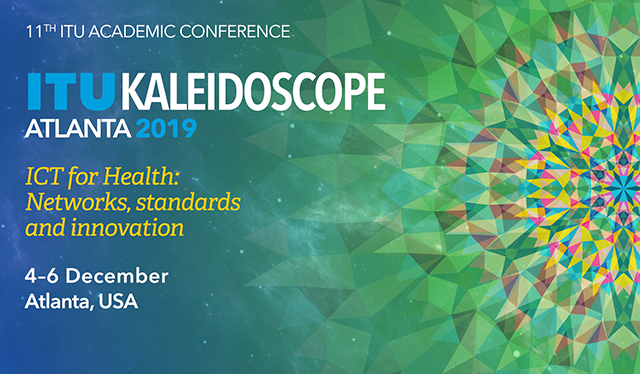
Kaleidoscope 2019 - ICT for Health: Networks, standards and innovation was the eleventh in a series of peer-reviewed academic conferences organized by ITU to bring together a wide range of views from universities, industry, and research institutions. The aim of the Kaleidoscope conferences is to identify emerging advancements in information and communication technologies (ICTs) and, in particular, areas in need of international standards to aid the healthy development of the Information Society.
The World Health Organization warns that at least half of the world’s population is still not fully covered by essential health services. In countries with sufficient coverage, caring for an ageing population requires significant expenditure from governments, as well as public and for-profit entities. Moreover, emergency response teams working in distress and disaster situations depend on interoperable and survivable networks and systems to effectively and efficiently rescue individuals and communities at risk.
Digital health is part of the "Fourth Industrial Revolution", where innovative ICT applications are mobilized to revolutionize the health sector – from manufacturing, to research and discovery, and health delivery. It harnesses new applications in ICTs to help tackle the technical and socio-economic challenges we face around health. The use of 5G, machine-to-machine (M2M) communications, cloud computing, the Internet of Things (IOT), etc. will lead the way to new frontiers in health services and towards the goal of universal, quality health coverage. Digital health will place rigorous requirements on communication networks including stricter requirements on service quality, tighter legal protections, and a more active role on the part of public authorities.
Kaleidoscope 2019 targeted specialists in the fields of ICT, digital health and socio-economic development, including researchers, academics, students, engineers, computer scientists, policymakers, regulators, innovators, futurists, clinicians and health practitioners.
Accepted and presented papers are published in the Conference Proceedings and will be submitted for inclusion in IEEE Xplore Digital Library. The best papers are also evaluated for potential publication in the IEEE Communications Standards Magazine. In addition, extended versions of selected papers will be considered for publication in the International Journal of Technology Marketing, the International Journal of Standardization Research, or the Journal of ICT Standardization. Pre-selected papers were evaluated for potential publication in The Lancet Digital Health.
A prize fund totalling CHF 6 000.- was shared among the authors of the three best papers, as judged by the Steering and Technical Programme Committees. In addition, young authors of up to 30 years of age presenting accepted papers received Young Author Recognition certificates.